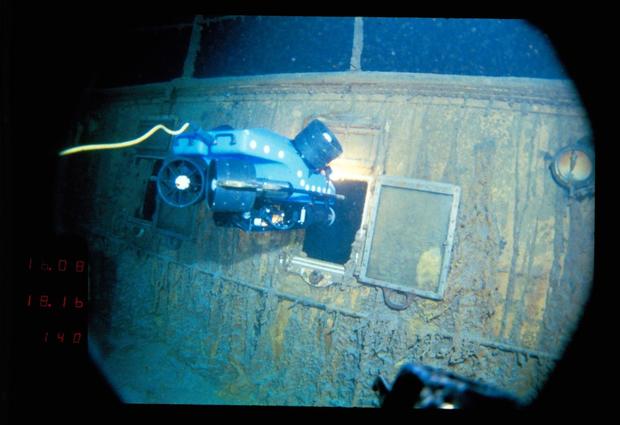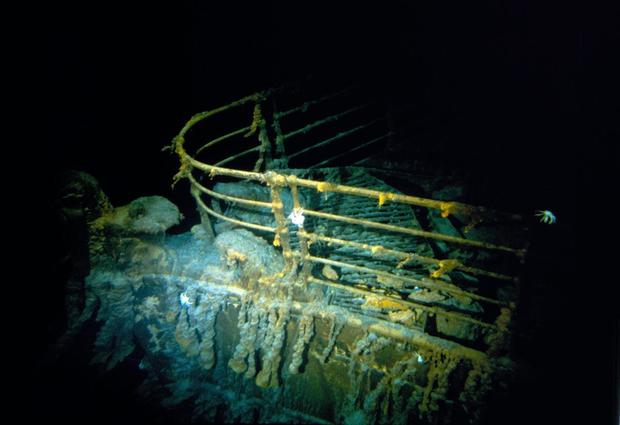"Rare, uncut" video of the 1986 dive exploring the Titanic wreckage released
An oceanographic institution has released over an hour of footage from the 1986 dive exploring the wreck of the R.M.S. Titanic that has mostly not been seen by the public before.
The footage was shared Wednesday evening by the Woods Hole Oceanic Institution in honor of the 25th anniversary of James Cameron's Academy Award-winning movie, "Titanic," which has been re-released in theaters around the country.
The wreckage of the Titanic was first found by researchers from the WHOI, working in partnership with a French institute, in 1985. That expedition was led by Dr. Robert Ballard. In June 1986, the team returned to the wreck site with a human-occupied submersible called Alvin and a remotely operated vehicle (ROV) called Jason Junior. That mission marked the "first time humans set eyes on the ill-fated ship" since its sinking in 1912, according to the institution.
The "rare, uncut and mostly unnarrated footage" was uploaded to the WHOI's YouTube channel Wednesday. The video includes images of the Alvin submersible approaching the ship and parking on its deck.
The footage also provides a look at interior shots of the wreck, including a look inside a chief officer's cabin and footage of debris on the ocean floor.
"More than a century after the loss of Titanic, the human stories embodied in the great ship continue to resonate," said Cameron in a statement provided by the institute. "Like many, I was transfixed when Alvin and Jason Jr. ventured down to and inside the wreck. By releasing this footage, WHOI is helping tell an important part of a story that spans generations and circles the globe."
About 2,200 people were aboard the ocean liner — heralded as "unsinkable" and designed to be the most luxurious ship available — when it set out into the North Atlantic on its maiden voyage. About 1,500 people died after the ship struck an iceberg and sank in the early hours of April 15, 1912. Only about 700 passengers and crew members survived to be rescued by the R.M.S. Carpathia.
The wreckage of the Titanic has remained about 12,600 feet below the ocean's surface ever since.
According to the WHOI, efforts to "locate and salvage" the ship began almost immediately after the sinking, but technical limitations kept the wreck hidden for nearly 75 years. By 1985, new imaging technology captured photographs of the ship and helped researchers find the wreck.
Dana Yoerger, a WHOI engineer and a member of both the 1985 and 1986 missions, said the 1986 expedition "changed how we explore the deep ocean."
"The human-occupied submersible Alvin brought scientists down 12,500 feet to the Titanic," Yoerger said in a statement. "Operating from Alvin, we used the Jason Jr robot to penetrate Titanic and transmit images of the ship's interior while the people remained safely outside the wreckage. For WHOI and the entire ocean research community, these advances provided an important foundation for modern deep-sea exploration technology."





